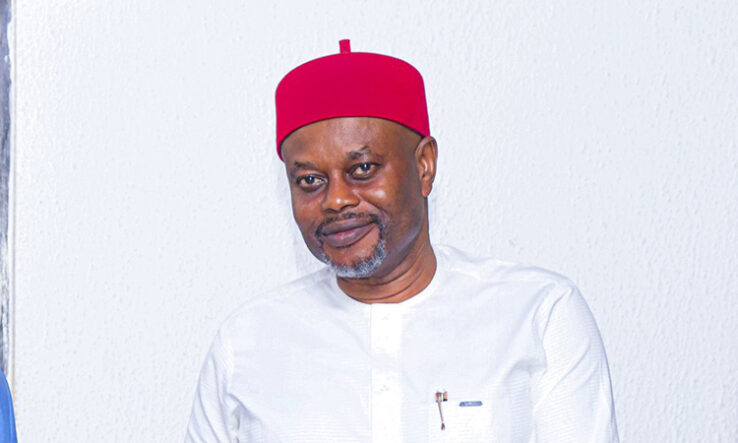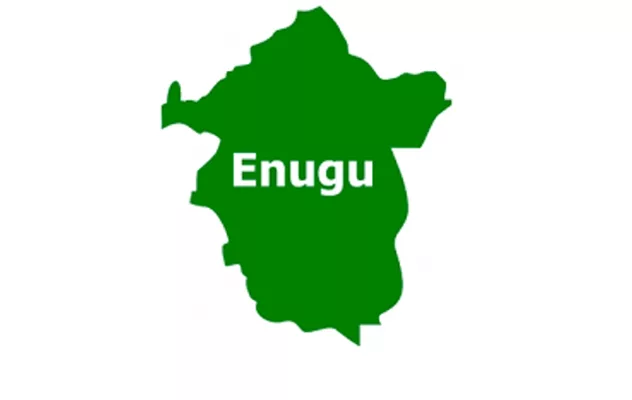…MTN Increases Data Tariff By Up To 200%
…Releases New Pricing Structure For 1GB, 4GB, Others
…Price Hike Sparks Concerns Among Subscribers
The House of Representatives has called on the Minister of Communications, Innovation and Digital Economy, Dr. Bosun Tijani, and the Nigerian Communications Commission (NCC) to suspend the proposed increase in telecommunications tariffs until service quality improves.
This resolution followed the adoption of a motion of urgent public importance moved by Hon. Obuku Oforji, who represents Yenagoa/ Kolokuma/Opokuma Federal Constituency of Bayelsa State, during plenary on Tuesday.
While moving the motion, Oforji referenced remarks made by Minister of Communications, Innovation, and Digital Economy, Bosun Tijani, following a stakeholders’ meeting with Mobile Network Operators in Abuja on January 8, 2025.
Tijani had disclosed that telecommunication tariffs would soon increase, citing ongoing consultations and pressure from telecom companies advocating tariff hikes of up to 100 percent.
However, he clarified that while there would be an upward adjustment, it would not reach the full 100 percent as proposed. The minister further stated that the Nigerian Communications Commission (NCC) would be responsible for approving and announcing the new tariff structure in due course.
A lawmaker has revealed that telecommunications companies are justifying their proposed tariff hike by citing rising investment costs, the need for improved network infrastructure, and increasing demand for digital services across critical sectors such as education, banking, and healthcare.
However, Hon. Oforji expressed concern over the move, noting that the National Association of Telecoms Subscribers has strongly opposed the proposed increase, describing it as insensitive and an additional burden on consumers already struggling with economic hardship and poor network service delivery.
“It is crucial for telecommunications companies to enhance their service delivery, particularly by addressing persistent network issues that Nigerians have endured for years, before considering any tariff increases”, he said.
He also raised concerns that the widespread impact of these price hikes could worsen financial hardships for the average Nigerian, hinder the country’s vision of using technology for economic recovery, deepen poverty, and widen existing inequalities, disproportionately affecting lower-income families.
“Affordable connectivity is crucial for progress in key sectors such as digital banking, education, healthcare, agriculture, and e-governance. Many informal sector workers depend on low-cost mobile data to access gig work opportunities, and a price hike could make it more difficult for them to stay connected”, he noted.
Expressing concern over the impact of rising telecommunications costs, Oforji lamented the financial strain it could place on small businesses.
“It is disheartening to think about the struggles small businesses will face. Many rely on affordable telecommunications for their daily operations, marketing, and customer engagement. An increase in costs will only add to their financial burden,” he said.
He further warned about the economic consequences of a potential tariff hike.
“Imagine if a 10 percent increase is approved, it is estimated that such a rise could reduce small business profitability by up to 7 percent, potentially forcing many to shut down,” he added.
He urged stakeholders to consider the broader economic implications and prioritise policies that ensure affordable and accessible telecommunications for all.
MTN Increases Data Tariff By Up To 200%
Meanwhile, MTN Nigeria has begun implementation of the tariff hike approved by the Nigerian Communications Commission (NCC) on January 24, 2025, catching many subscribers off guard with significant increase on data tariffs.
This is coming after the NCC approved a tariff increase for telecommunications companies, citing prevailing market conditions.
The company also confirmed this in a response shared on its X (formerly Twitter).
The company wrote: “Y’ello! Thanks for stopping by, We apologise for any inconvenience and delayed response. A price increase has been implemented to enhance our services and serve you better, which is why you are seeing the updated amount.”
This is coming after the NCC approved a tariff increase for telecommunications companies.
Reuben Mouka, the commission’s spokesperson, announced the decision in January, explaining that the approval aligns with the NCC’s regulatory powers under Section 108 of the Nigerian Communications Act, 2003.
According to Mouka, the adjustment allows a maximum increase of 50 percent on current tariffs, a compromise from the over 100 percent hike initially requested by some network operators.
“The adjustment, capped at a maximum of 50 percent of current tariffs, though lower than the over 100 percent requested by some network operators, was arrived at taking into account ongoing industry reforms that will positively influence sustainability,” Mouka stated.
In compliance with this approval, it was observed that MTN has increased the cost of data bundles by about 200%. While a 50% hike was approved, not all tariffs increased by the same amount.
According to the new pricing structure, plans such as the 1.8GB monthly plan that used to be N1,000 increased to N1,500 staying within the 50% window. The 15GB data bundle, which previously cost N2,000, now costs N6,000. Similarly, the 1.5TB plan has increased from N150,000 to N240,000.
Other affected plans include: the 100GB bundle, which now costs N25,000 for 90GB, up from the previous price of N20,000 for 100GB. The 600GB bundle has also increased from N75,000 to N120,000 for 480GB.
The price hike has sparked concerns among subscribers who are displeased with the tariff increase, which they have decried as coming at a time of unfavourable economic conditions in the country.
According to the NBS, the country’s inflation rate is currently 34.80%.
Food inflation, on the other hand, was up to 40% in November 2024, up from 32% in 2023. This means that many services compete with basic needs like food.
However, the socioeconomic conditions are also affecting telcos, which have lost billions of dollars to forex volatility following the instability of the naira. In 2024, MTN recorded a N656 billion loss while Airtel recorded significant losses in 2023.
According to a user of the network, who simply identified himself as Daniel, who bought airtime of N1,000, a message he received from the service provider stated: Recharge of N1,000 was successful. Rates: Voice @30k/ sec (local), Data @N3.07/MB (local), SMS @N6/SMS (local). For International and Roaming rates, users are referred to the network’swebsite.
Many have taken to the social media to express their dissatisfaction with the new prices, calling on the company to reconsider the increase.
An X user, Khan wrote: “I think it’s high time we boycotted MTN. Their network is terrible, and their data plans are a rip-off. the 15GB package doesn’t even last three days. During the protest, they deliberately sabotaged their own network to prevent it from happening.”
An X user, @AfrokonnectNG wrote: “This sudden price increase from N2,000 to N6,000 for 15GB is wild! How are people supposed to cope with such an outrageous hike? Internet access is essential for work, education, and staying connected, yet it’s being priced like a luxury.”
Another user, Silva wrote: “Nigeria is a very difficult place to live in honestly. MTN waking up one day to increase their weekly 15gb data from 2k to 6k without prior warning is textbook insanity. That’s 24k in a month, almost the minimum wage of the country on data, bruh, this is hell.”
In response to the development, Karl Toriola, MTN Nigeria’s CEO, said the adjustment would address rising operational costs and ensure critical investments in infrastructure in the telecom industry.
He noted that this tariff adjustment is an important step towards addressing economic pressures on the industry.
The telecommunications giant CEO assured subscribers that the tariff adjustment would improve services.




 1 week ago
26
1 week ago
26








 English (US) ·
English (US) ·